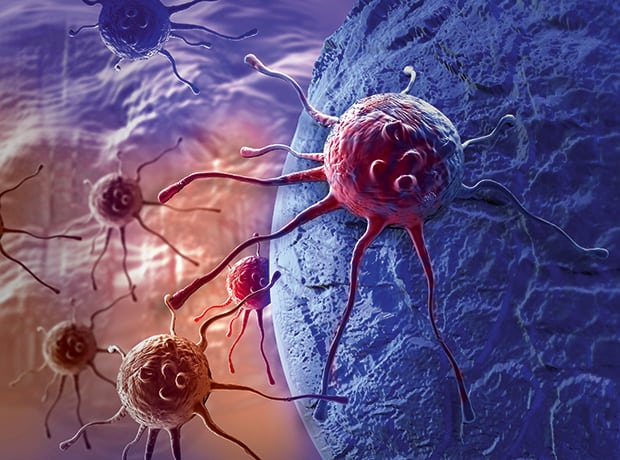JHU083 inhibited tumor growth and induced tumor cell death in mice
Researchers at the Johns Hopkins Kimmel Cancer Center and Johns Hopkins Drug Discovery have found that a new treatment can reprogram immune cells to shrink hard-to-treat prostate and bladder cancers.
Published in a journal Cancer immunology researchThe researchers found that the drug, JHU083, inhibited tumor growth and caused tumor cell death in mice.
Currently the third most common cancer in the United States, prostate cancer occurs when cells grow uncontrollably within the prostate, while bladder cancer is characterized by the growth of abnormal cells within the lining or muscle of the bladder.
The researchers aimed to reprogram immunosuppressive tumor-associated macrophages into anti-cancer immune cells “to enhance therapeutic responses to immunotherapy and other standard cancer treatments,” explained Jelani Zarif, the Robert E. Meyerhoff Endowed Professor and associate professor of Oncology at the Johns Hopkins University.
Macrophages support tumor growth, suppress T cell activity, and inhibit the immune response to cancer. When grown without the amino acid glutamine, macrophages utilize monocytes, macrophage precursor cells, to develop into immune-activated macrophages.
JHU083 is a type of molecule called a prodrug that allows cells in the body to convert it into an active glutamine inhibitor from inside the tumor.
The researchers showed that JHU083 inhibited glutamine utilization in prostate and bladder tumors, suppressing tumor growth and inducing tumor cell death, while reprogramming immune-suppressing macrophages into immune-enhancing macrophages in mice.
In doing so, the macrophages began to destroy tumor cells and helped attract tumor-killing T cells and natural killer cells to the tumor.
“JHU083 may be a promising anti-cancer therapy for tumors that lack immune-suppressing macrophages and T cells,” Zarif explained, “and may also be a promising agent for tumors that do not respond to checkpoint inhibitors.”
The researchers plan to begin clinical trials of JHU083 in patients with treatment-resistant prostate or bladder cancer to determine whether the drug shrinks tumors and prevents them from spreading, and will continue to study whether the drug can be combined with other treatments to make it more effective against tumors.




